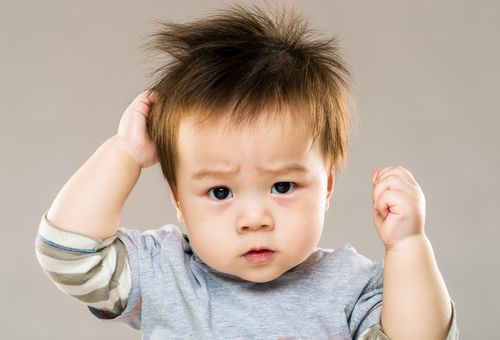Memory Loss Results From New Brain Cells, Cluing Scientists In To Why Babies Don't Retain Memories

Researchers say that children start forming memories when they are just 2 years old. It might take a trigger or an event to recall those memories, and for many, they are stored in the deepest parts of their subconscious. According to a new study, the memories that infants develop are cleared away when new brain cells are developed.
“It's just truly fascinating," said Thomas Insel, director of the National Institute for Mental Health, Science News magazine reported. "Nobody has actually looked at this very carefully before."
The study author, Sheena Josselyn, of the Hospital for Sick Children in Toronto said it was previously believed that memories were associated with language. “But the really weird thing is that most animals show infantile amnesia too,” she said. “So the development of language can’t be the whole explanation.”
Josselyn co-authored the study with Paul Frankland, her husband, after curiosity and observing their own toddler led them to question why young children aren’t able to retain memories from infancy. Cell production starts to slow down in childhood. "That's exactly when we start to be able to form long-term memories," Josselyn said.
The team of researchers used mice to find out if their theory was correct or not. They put adult mice in a chamber with stripes on the walls and a vinegary smell. They then mildly shocked the animals in the foot. The mice eventually became fearful of the room, and after 28 days, they would freeze up, scared, when they were put back in the chamber.
Conversely, the baby mice were not fearful. Even after being shocked, their fear faded the day after, thus leading researchers to believe that new brain cells are related to memory retention. The animals' behavior hinted that making new brain cells might be mucking up memory retention, Science News reported.
To test this theory further, after the adult mice were shocked, they were given a running wheel for a few days or weeks, which triggered new brain cells in the hippocampus, according to Josselyn. When the mice went back into the room after continuous exercise, their memory of the foot shock lessened.
Josselyn and colleagues shocked adult mice in the striped room and then let them exercise at will on running wheels for days or weeks. Running naturally triggers the growth of new brain cells, so in just a few weeks, racing on the wheel helped mice forget their fear of the room. "It was really amazing to us that we could make a memory last much longer in these infant mice just by decreasing neurogenesis," Josselyn said.
This new research is important in understanding how memories develop and for the possibility of developing treatments for degenerative brain diseases. Josselyn believes that the new cells could be messing up brain circuits laid down by preexisting neurons. And she also points out that maybe not remembering certain things is a positive thing. “Maybe forgetting is not a bad thing,” Josselyn said. “Maybe it’s good to clear away some memories and forget some things that are not so important.”
Source: Frankland PW, Josselyn SA, Martinez-Canabal A, et al. Hippocampal Neurogenesis Regulates Forgetting During Adulthood and Infancy. Science. 2014.



























